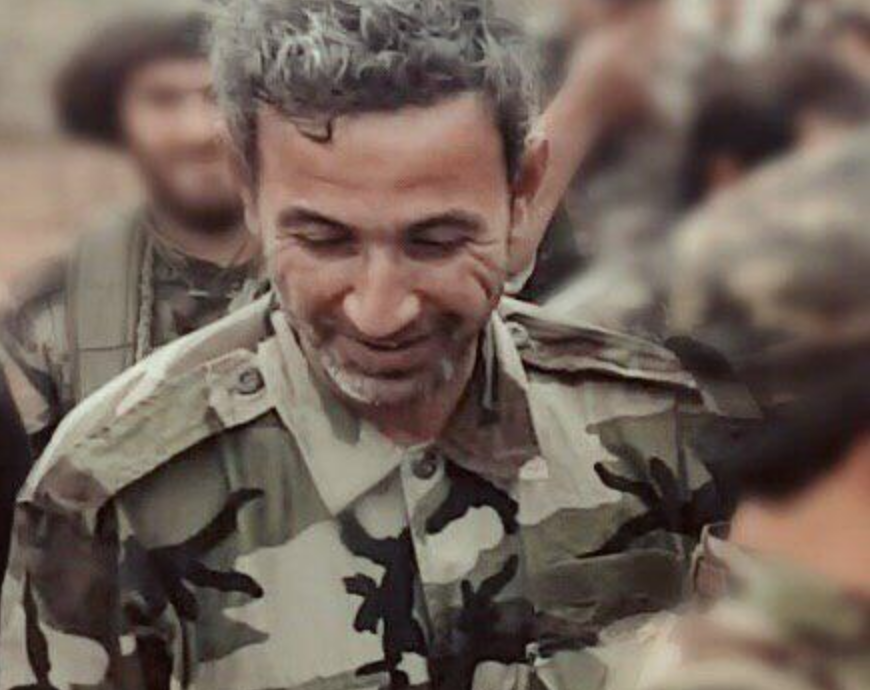Iraq has witnessed countless tragedies in many forms — wars, genocides, riots, killings, and more. Yet the real evil lies within the architects of these inhuman practices: those who justified acts of murder, torture, kidnapping, and mutilation of corpses to an extent no one could have imagined.
According to Iraqi media sources, Shiite armed factions loyal to Iran agreed to appoint one of the chief architects of these inhumane acts — the Kata’ib Hezbollah commander Abdulaziz Al-Muhammadawi — as the successor to the late Abu Mahdi Al-Muhandis as Chief of Staff of the Popular Mobilization Forces (PMF), a position that effectively makes him the military commander of the organization.
Reports indicate that the decision to appoint Al-Muhammadawi was made by a committee of six PMF leaders under the direct supervision of Iran’s Islamic Revolutionary Guard Corps (IRGC). Al-Muhammadawi represents the Iranian-aligned current within the PMF, known as the Wilayati factions — those loyal to Iran’s Supreme Leader, Ali Khamenei.
The Shadow Man Comes to Light
From the backrooms of secrecy to the public stage, Abdulaziz Al-Muhammadawi — once known as the shadow that followed Qassem Soleimani and Abu Mahdi Al-Muhandis everywhere — finally emerged after their deaths. The “shadow” revealed its true face: a figure whose claws dripped with the blood of hundreds of Iraqis — men, women, and children — who fled the fires of war only to fall prey to the fangs of Abu Fadak, as Al-Muhammadawi is also known.
Many were detained in underground prisons, while women and children were left destitute, begging in the streets of Baghdad and other provinces. These survivors — widows and orphans with no shelter — were the remnants of those who escaped mass graves and live burials. All of this unfolded under the cloak of Qassem Soleimani and Al-Muhandis, and in the shadow of the PMF’s criminal operations under the pretext of “defeating terrorism.” The victims were mostly Sunni civilians from Iraq’s western and northern provinces, where Al-Muhammadawi led brutal campaigns of extermination, dismemberment, and displacement.
Early Roots of Violence
Al-Muhammadawi’s path was shaped within the Badr Organization, where he absorbed its extremist doctrine. Between 1983 and 1991, he served as a liaison between Badr’s intelligence units and Iran’s Revolutionary Guard. Over time, he became an interrogator of Iraqi prisoners in Iranian camps during the Iran-Iraq war.
It was there that the sadistic tendencies of his personality began to surface — witnessing and later performing the most brutal forms of physical and psychological torture. These experiences cemented two defining traits: first, his mastery of covert operations under the patronage of powerful figures, and second, his sadistic pleasure in inflicting suffering.
During the 1991 Shaaban Uprising, Al-Muhammadawi played a key role under the Badr Corps in coordinating infiltration routes for the Revolutionary Guard into southern Iraq. After the uprising, he led interrogation units tasked with identifying and eliminating government employees, police, and security personnel. Eyewitnesses recount that those detained were tortured and executed — sometimes shot, sometimes buried alive — in makeshift prisons like Al-Hakim School in Najaf.
He also oversaw the burning of government offices, civil registries, and public archives, and orchestrated mass executions in the courtyards of the holy shrines in Najaf and Karbala — where blood stained the very grounds of the sanctuaries.
The Rise of Abu Fadak
Today, Abdulaziz Al-Muhammadawi stands as the foremost figure within Kata’ib Hezbollah after decades of experience in killing, torture, and intimidation. Iraqi media report that he operates under multiple aliases — Abu Fadak, Abu Hamid, and Al-Khal (“the uncle”) — to conceal his movements and connections.
A former PMF fighter revealed that Al-Muhammadawi was known as Abu Hamid while leading operations in Jurf Al-Sakhar, south of Baghdad. He was the first to receive Qassem Soleimani at his large headquarters overlooking a private Hezbollah prison where detainees were interrogated, tortured, and executed under Al-Muhammadawi’s supervision. After the battle for Jurf Al-Sakhar, he relocated to Baiji, north of Baghdad, and continued commanding militia operations from there.
Media reports indicate that Al-Muhammadawi directly oversaw the militias responsible for the massacre at Al-Khilani and Al-Sink squares in Baghdad, where peaceful protesters were gunned down. He was also behind the kidnapping of activists and attacks on media offices during the early weeks of the protests.
His role extended beyond Iraq — he reportedly fought alongside the regime of Bashar Al-Assad in Syria, committing numerous war crimes in the towns of Al-Qusayr (Homs countryside) and Aleppo.
The Ideology of Devotion
The ideology driving these killers and terrorists, including Al-Muhammadawi, stems from a doctrine of loyalty — not to the homeland or nation, but to the theology of the “Absent Imam Al-Mahdi” and the “Deputy of the Wali al-Faqih” in Iran. This belief fosters the enforcement of so-called “divine decrees” that must be implemented even before the Mahdi’s reappearance.
This ideology granted Al-Muhammadawi and his followers the religious legitimacy to act as enforcers of divine will, unleashing their crimes after the fall of Saddam Hussein’s regime. It remains the same ideological engine that drives Al-Muhammadawi and all Iran-aligned militias and political factions in Iraq today.
